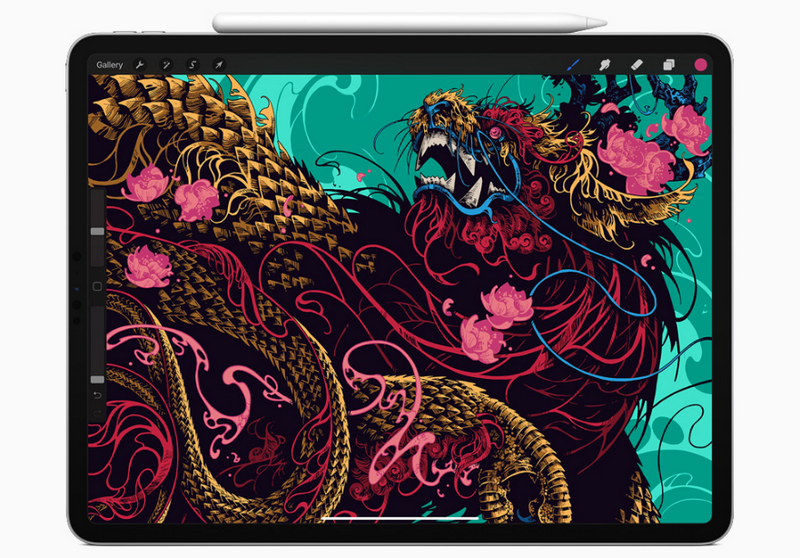Among the next-gen display technologies based on miniaturized LEDs, while Micro LED is still confronting issues of low yield and high cost, Mini LED backlight display technology has been commercialized and is seeing a thriving future starting next year.
Currently at the market, we can see Mini LED backlit gaming notebooks and monitors launched by Acer, Asus, MSI, Lenovo and other notebook brands. The long rumored Mini LED iPad Pro from Apple is another highlight expected by the market and the industry. In addition, Samsung is reportedly debuting a series of Mini LED backlit TVs. Chinese TV brand TCL will also increase shipment for Mini LED backlit TV products.

(Image: Apple)
Comparing display technologies of conventional LCD, Mini LED backlight and OLED, Roger Chu, Analyst of TrendForce, pointed out that Mini LED backlight display based on local dimming zones can deliver high contrast ratio and brightness that is compatible with OLED display while outpace it in reliability.
However, OLED has its edge in small and middle size displays with its mutuality in production so Mini LED backlight has difficulty to rival OLED in the field. Nevertheless, the yield of OLED display usually drops as the size increase, leading to climbing cost for larger size OLED displays. Mini LED backlight can thus leverage its cost-effective strength for middle and larger size display applications.
In fact, most of the Mini LED backlight products in the market now are applications featuring displays larger than 17 inches. The only exception is Apple’s upcoming 12.9-inch Mini LED iPad Pro. Apple has the urge to get rid of the dependency on Samsung supply chain so it chose Mini LED backlight display for its new product. The company hopes that the brand effect can make its customers willing to pay a bit more for the innovative technology.
Driven by the leading brands, we are seeing a great impacts of Mini LED backlight technology. But since the production cost is still high, selling price of the products using the technology could also be expensive. Even gilded with the brand names, it is still a matter of market acceptance to see if Mini LED backlight display can create a new era of display technology.
More market trends and production challenges of Mini LED and Micro LED display technologies are broadcasting at 2020 Micro LED Forum. Register and watch now!






 CN
TW
EN
CN
TW
EN







